Filter by
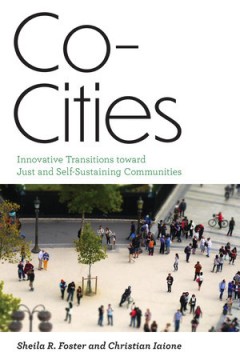
Co-Cities: innovative transitions toward just and self-sustaining communities
"A new framework for experimental and innovative "city-making" for urban resources and services to be developed and governed in a collaborative, socially, and economically inclusive ways"--OCLC-licensed vendor bibliographic record.
- Edition
- -
- ISBN/ISSN
- 9780262369930
- Collation
- 1 online resource.
- Series Title
- -
- Call Number
- -

Sharing cities :a case for truly smart and sustainable cities
The work makes a case for understanding cities as shared spaces and venues for collaboration; and proposes policies and practices to share cities fairly. It argues that with modern technologies the intersection of urban space and cyberspace provides an unrivalled platform for more just, inclusive and environmentally efficient economies and societies rooted in a sharing culture.OCLC-licensed ven…
- Edition
- -
- ISBN/ISSN
- 9780262329705
- Collation
- 1 online resource (x, 445 pages) :illustrations.
- Series Title
- -
- Call Number
- -
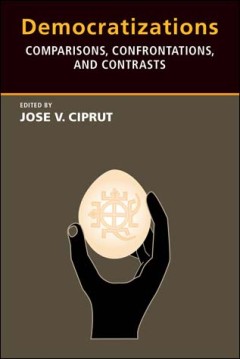
Democratizations: Comparisons, Confrontations, and Contrasts
A cross-disciplinary examination of democratization, as seen in different attempts at it across the globe.Democracy is not in steady state and democratizations are open-ended processes; they depend on structures and functions in systemic contexts that idiosyncratically evolve in tone, tenor, direction, and pace. They affect and are affected by scores of determinants, both perceived and hypothet…
- Edition
- -
- ISBN/ISSN
- 9780262270366
- Collation
- 1 online resource (xiii, 368 pages)
- Series Title
- -
- Call Number
- -
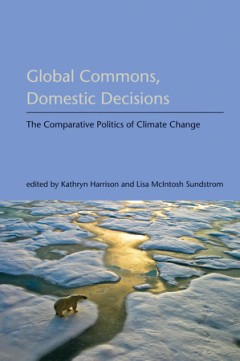
Global commons, Domestic decisions :the comparative politics of climate change
Climate change represents a “tragedy of the commons” on a global scale, requiring the cooperation of nations that do not necessarily put the Earth's well-being above their own national interests. And yet international efforts to address global warming have met with some success; the Kyoto Protocol, in which industrialized countries committed to reducing their collective emissions, took effe…
- Edition
- -
- ISBN/ISSN
- 9780262289481
- Collation
- 1 online resource (xi, 312 pages) :illustrations.
- Series Title
- -
- Call Number
- -
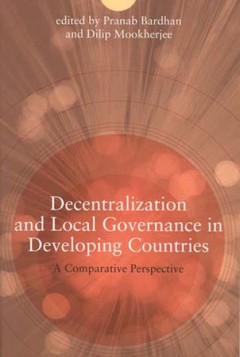
Decentralization and local governance in developing countries: a comparative …
Over the past three decades the developing world has seen increasing devolution of political and economic power to local governments. Decentralization is considered an important element of participatory democracy and, along with privatization and deregulation, represents a substantial reduction in the authority of national governments over economic policy. The contributors to Decentralization a…
- Edition
- -
- ISBN/ISSN
- 9780262267694
- Collation
- 1 online resource (vi, 363 pages)
- Series Title
- -
- Call Number
- -
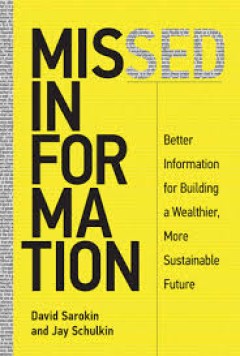
Missed information better information for building a wealthier more sustainab…
How better information and better access to it improves the quality of our decisions and makes for a more vibrant participatory society.OCLC-licensed vendor bibliographic record.
- Edition
- -
- ISBN/ISSN
- 9780262336253
- Collation
- 1 online resource
- Series Title
- -
- Call Number
- -

The power of partnership in open government :reconsidering multistakeholder g…
"The book explores the origin story of the Open Government Partnership and place the open government reform movement in the context of the long history of public sector reform"--OCLC-licensed vendor bibliographic record.
- Edition
- -
- ISBN/ISSN
- 9780262372091
- Collation
- 1 online resource.
- Series Title
- -
- Call Number
- -
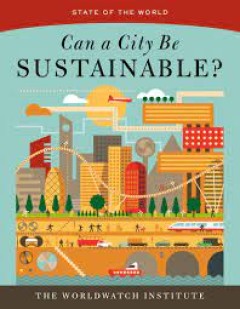
Can a City Be Sustainable? (State of the World)
Cities are the world’s future. Today, more than half of the global population—3.7 billion people—are urban dwellers, and that number is expected to double by 2050. There is no question that cities are growing; the only debate is over how they will grow. Will we invest in the physical and social infrastructure necessary for livable, equitable, and sustainable cities? In the latest edition …
- Edition
- -
- ISBN/ISSN
- 978-1610917551
- Collation
- -
- Series Title
- -
- Call Number
- -
 Computer Science, Information & General Works
Computer Science, Information & General Works  Philosophy & Psychology
Philosophy & Psychology  Religion
Religion  Social Sciences
Social Sciences  Language
Language  Pure Science
Pure Science  Applied Sciences
Applied Sciences  Art & Recreation
Art & Recreation  Literature
Literature  History & Geography
History & Geography